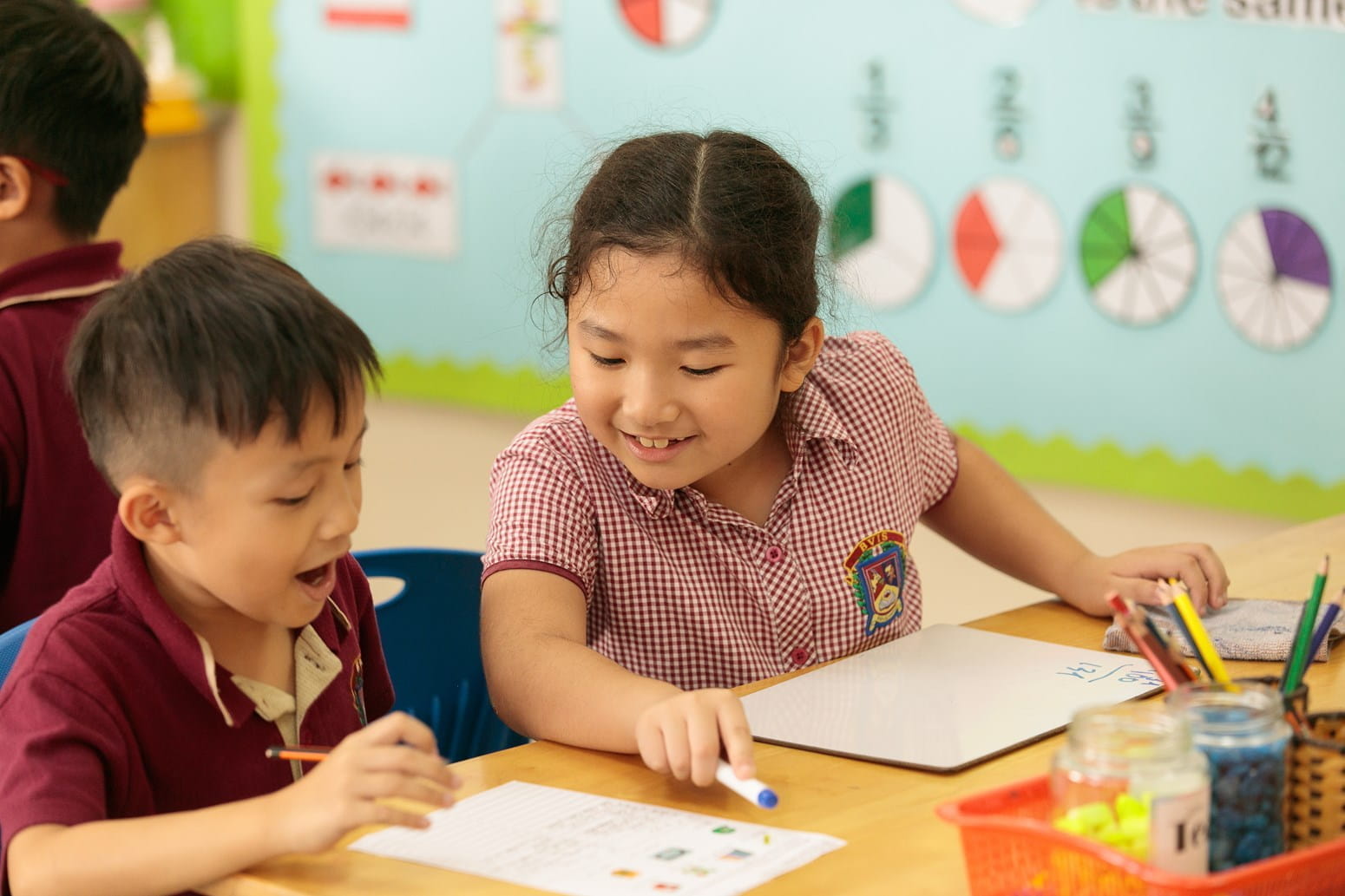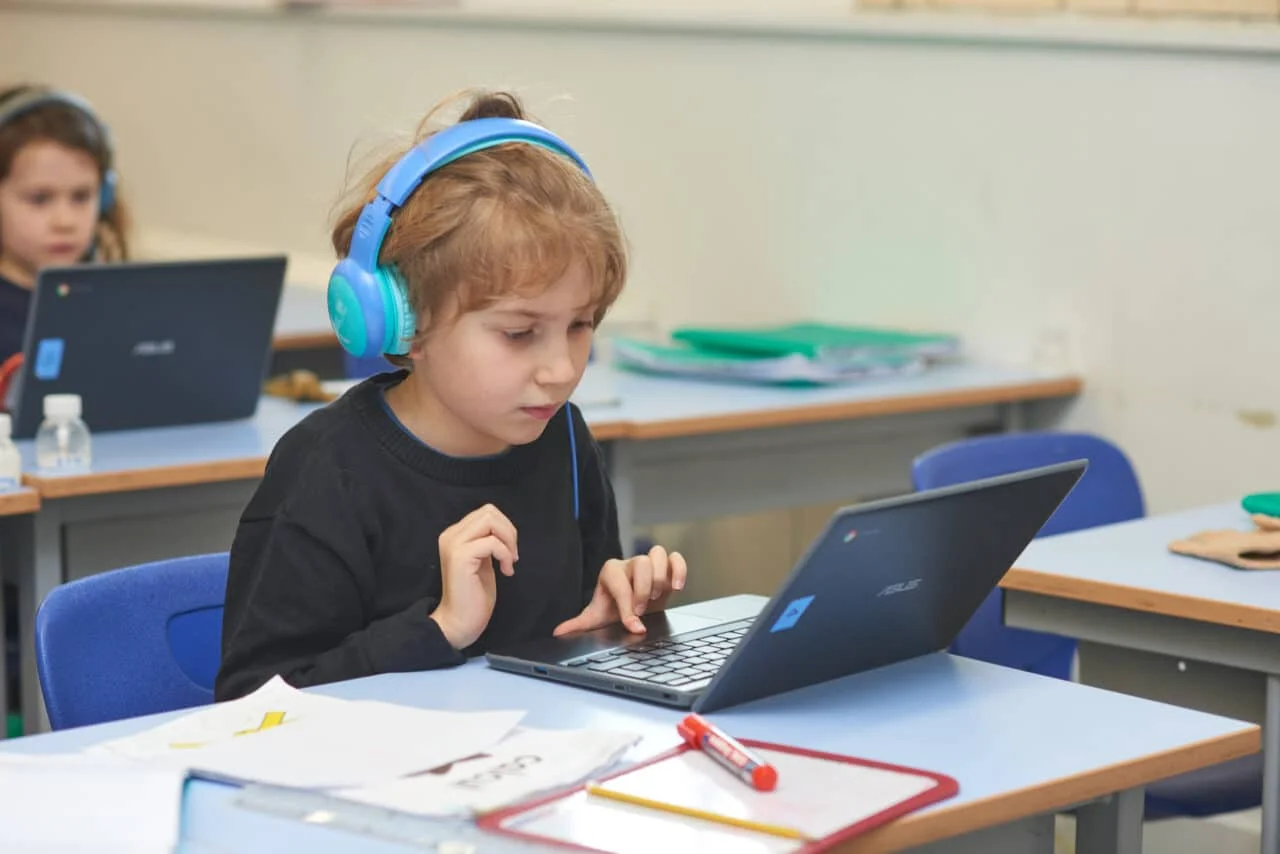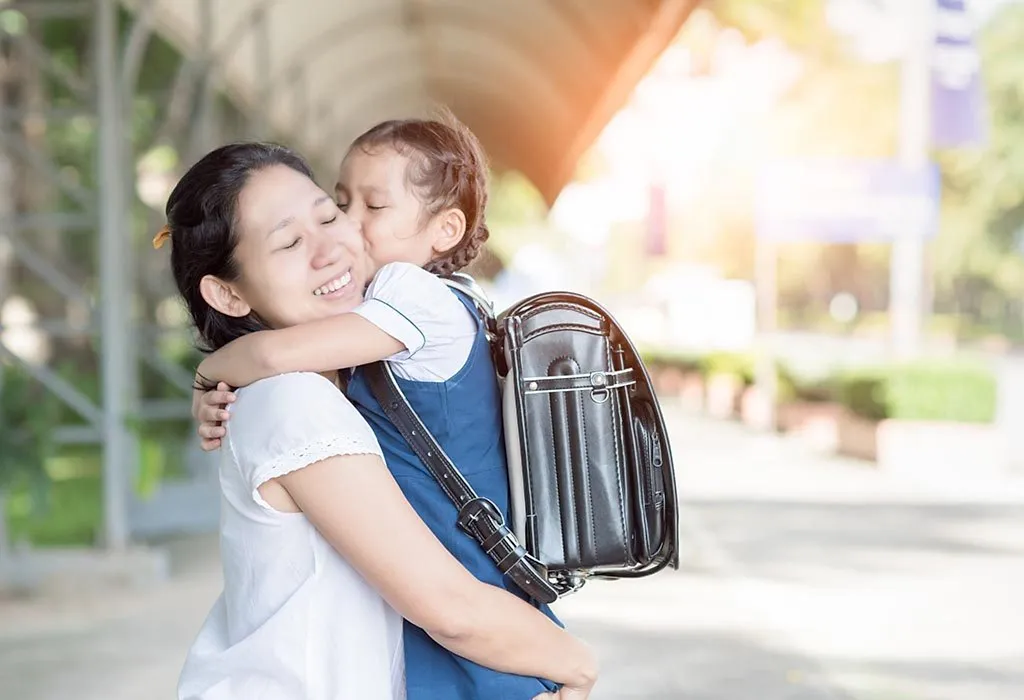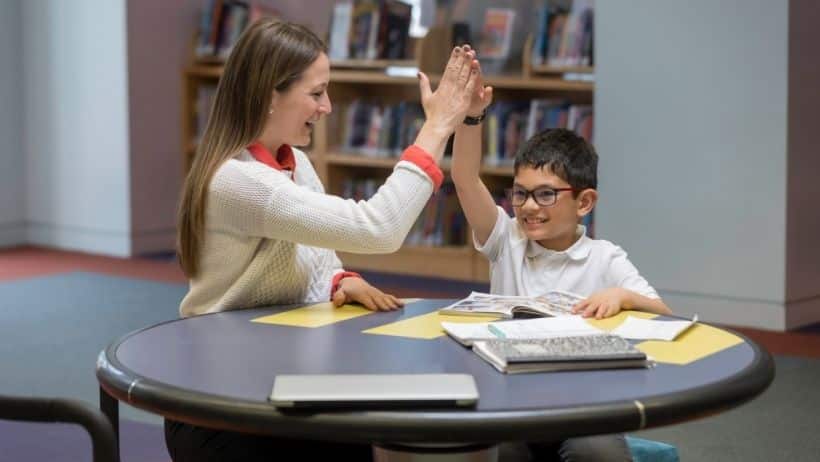What Are the Benefits of Bilingual Education in Parenting?
For a holistic boost in your child’s development, bilingual education in parenting offers numerous advantages. Not only does it enhance cognitive skills and communication abilities, but it also fosters cultural appreciation, academic success, problem-solving prowess, empathy, and future career prospects. By engaging in bilingual education, you provide your child with a strong foundation for success across various aspects of life. This approach lays the groundwork for enhanced abilities and skills that can positively impact your child’s overall growth and development.
Key Takeaways
- Bilingual education enhances parent-child communication.
- Promotes cultural understanding and appreciation.
- Fosters cognitive development and problem-solving skills.
- Strengthens the parent-child bond through shared languages.
- Provides children with academic and career advantages.
Cognitive Advantages

Bilingual education in parenting offers numerous cognitive advantages, including enhanced problem-solving skills and increased cognitive flexibility. Research has shown that being bilingual can positively impact brain development, particularly in areas related to executive functions such as problem-solving, task-switching, and working memory. When raising a child bilingually, you’re providing them with a unique opportunity to develop critical thinking skills from an early age.
Studies have demonstrated that bilingual individuals often exhibit better critical thinking abilities compared to monolinguals. This is believed to be linked to the constant need to navigate between two languages, which requires cognitive flexibility and the ability to analyze information from different perspectives. By engaging in bilingual education with your child, you’re nurturing their capacity for critical thinking and promoting a more adaptable and agile mindset.
Incorporating bilingualism into parenting not only enhances cognitive skills but also lays a strong foundation for advanced problem-solving capabilities and improved cognitive agility in children. Embracing bilingual education can truly shape your child’s cognitive development in a positive and enriching way.
Enhanced Communication Skills
By engaging in bilingual education with your child, you’re fostering enhanced communication skills that are essential for traversing a multilingual landscape in today’s interconnected world. Language development is an important aspect of bilingual education that enhances not only linguistic abilities but also overall communication skills. Research suggests that children exposed to multiple languages from a young age exhibit better problem-solving skills, improved critical thinking, and enhanced creativity, all of which contribute to more effective communication.
Moreover, bilingual education not only aids in language development but also strengthens the bond between parent and child. The shared experience of learning and practicing different languages creates a unique and special connection that can deepen the relationship between you and your child. This bond is vital for effective communication, as it fosters trust, understanding, and open dialogue.
Cultural Awareness and Appreciation

Developing cultural awareness and appreciation through bilingual education is a key component in nurturing a child’s understanding of diverse perspectives and traditions. Bilingual education facilitates cross-cultural exchange by exposing children to different languages, helping them appreciate the nuances of various linguistic expressions. Through this exposure, children not only learn a new language but also gain insights into the cultural contexts in which that language is embedded, fostering language appreciation and cultural sensitivity.
By engaging in bilingual education, children naturally develop diversity awareness as they navigate between different linguistic and cultural frameworks. This exposure broadens their worldview, encouraging them to value and respect the differences that exist among various cultures.
As children learn to communicate in multiple languages, they become more attuned to the importance of cultural sensitivity, recognizing the significance of language in shaping one’s identity and worldview.
In essence, bilingual education serves as a gateway to fostering cultural awareness and appreciation, equipping children with the skills needed to navigate an increasingly interconnected and diverse world.
Greater Academic Success
Bilingual education in parenting can greatly enhance your child’s academic performance. Studies show that bilingual individuals often excel in tasks that require problem-solving and multitasking skills. Moreover, the cognitive development enhancement associated with bilingualism can lead to improved critical thinking abilities, which are essential for academic success.
Academic Performance Boost
Achieving greater academic success is a well-documented advantage of bilingual education in parenting. Studies have shown that children in bilingual education programs often exhibit enhanced study habits compared to their monolingual peers. The cognitive flexibility gained from switching between languages can improve attention spans and increase information retention, leading to more effective study sessions and better academic performance overall.
Furthermore, bilingual education promotes parent involvement in their children’s academic journey. Parents who are engaged in their child’s bilingual education are more likely to monitor homework, communicate with teachers, and actively participate in school activities. This heightened level of parental engagement has been linked to improved academic outcomes, as it creates a supportive environment for learning both languages and other subjects.
Cognitive Development Enhancement
Enhancing cognitive development through bilingual education in parenting has been shown to greatly contribute to greater academic success in children. Cognitive growth is markedly enhanced when children are exposed to multiple languages from an early age. Research indicates that bilingual children often demonstrate better problem-solving skills, increased creativity, and improved critical thinking abilities compared to monolingual children. These cognitive advantages acquired through bilingualism can lead to enhanced academic performance across various subjects.
The educational benefits of bilingual education in parenting are vast. Studies have shown that bilingual children tend to have higher academic achievement, better test scores, and improved school performance. By fostering cognitive development through bilingualism, parents can provide their children with a strong foundation for success in their academic endeavors.
The cognitive flexibility gained from engaging with multiple languages not only aids in language acquisition but also transfers to other areas of learning, giving bilingual children a distinct advantage in the classroom. Ultimately, investing in bilingual education in parenting can pave the way for greater academic success and future opportunities for children.
Improved Language Skills
Improving language proficiency through bilingual education in parenting has been linked to greater academic success in children, showcasing the significant impact language skills have on overall scholastic achievement. Research indicates that children who are bilingual tend to outperform their monolingual peers in various academic areas.
By developing strong language proficiency in multiple languages, children not only enhance their communication abilities but also improve their cognitive skills, such as problem-solving and critical thinking.
Enhanced language skills through bilingual education also foster cultural awareness in children. This cultural competency can lead to better social integration, empathy towards others, and a broader worldview.
Additionally, bilingualism has been associated with improved executive functioning, which includes skills like attention control, working memory, and cognitive flexibility, all of which are essential for academic success.
Improved Problem-Solving Abilities

Developing bilingual skills through education can greatly enhance your problem-solving abilities, allowing for more flexible and creative approaches to challenges. Research has shown that bilingual individuals often excel in critical thinking, as they’ve the ability to analyze situations from multiple linguistic and cultural perspectives. This heightened critical thinking skill enables them to break down complex problems more effectively and come up with innovative solutions.
Moreover, bilingualism has been linked to improved creativity in problem-solving. When faced with a challenge, bilingual individuals can draw from their diverse language knowledge to think outside the box and devise creative solutions. This ability to switch between languages and adapt their thinking accordingly fosters a more dynamic problem-solving process.
Increased Empathy and Understanding
By engaging in bilingual education in parenting, you can cultivate increased empathy and understanding towards others, enhancing your ability to connect across different cultures and languages. Research suggests that bilingualism can have a profound impact on emotional intelligence and cross-cultural connections within families. When parents speak multiple languages with their children, they create a unique environment that fosters multilingual empathy and a deeper understanding of diverse perspectives.
Parent-child bonding is strengthened through shared languages, as it allows for more nuanced communication and a greater sense of closeness. The ability to understand and empathize with others who may speak different languages or come from different cultural backgrounds is a valuable skill that can be nurtured through bilingual education in parenting.
This enhanced empathy not only benefits the family unit but also extends to interactions with a broader community, fostering a more inclusive and understanding society. Embracing bilingualism in parenting isn’t only about language acquisition but also about nurturing empathy and connections that transcend linguistic barriers.
Enhanced Career Opportunities

Speaking a second language can give you a significant advantage in the job market, opening up opportunities that may not be available to monolingual individuals.
The ability to communicate in multiple languages also enhances your global networking skills, allowing you to connect with a broader range of professionals and businesses.
Research shows that bilingual individuals often have increased career mobility and access to international job opportunities due to their language proficiency.
Job Market Advantage
Mastering a second language through bilingual education can greatly enhance your career opportunities in today’s competitive job market. Research shows that bilingual individuals often receive a salary increase compared to their monolingual counterparts. Employers value language skills, and bilingual employees are seen as assets, especially in industries with a global focus.
By being able to communicate effectively with a broader range of clients, colleagues, and partners, you open doors to new professional opportunities and potential promotions.
Moreover, bilingualism can lead to professional advancement. Many companies seek employees who can speak multiple languages to facilitate international business relations. Having proficiency in a second language can set you apart from other candidates when applying for jobs or seeking career progression within your current workplace.
It demonstrates adaptability, cultural awareness, and a willingness to expand your skill set, all of which are highly valued in today’s dynamic job market. Investing in bilingual education can significantly boost your job market advantage and open up a world of career possibilities.
Global Networking Skills
Proficiency in a second language acquired through bilingual education can greatly enhance your global networking skills, opening doors to improved career opportunities and professional growth. By being bilingual, you can engage in language exchange programs where you not only learn a new language but also share your native language with others. This fosters cross-cultural communication and understanding, essential for effective global networking.
Attending networking events in different countries or with international participants becomes more fruitful when you can converse fluently in multiple languages. This ability allows you to build stronger connections, showcase your adaptability, and stand out in a competitive job market. Employers value individuals who can navigate diverse cultural settings and communicate with a wider range of clients and colleagues.
In today’s interconnected world, the demand for professionals with global networking skills is on the rise. Bilingualism enhances your marketability and can lead to enhanced career opportunities, offering you a competitive edge in the workforce.
Frequently Asked Questions
How Can Bilingual Education Benefit a Child’s Emotional Intelligence?
Understanding emotions in multiple languages enhances cognitive flexibility, crucial for emotional intelligence. Bilingual education nurtures empathy, assisting emotional regulation. Enhanced communication skills arise from maneuvering through diverse linguistic contexts, enriching emotional intelligence in children.
Does Bilingual Education Help Children Develop Better Social Skills?
Learning in two languages through bilingual education enhances language acquisition, fostering better social skills. Exposure to diverse cultures promotes cultural competence, enabling children to communicate effectively and empathize with others from different backgrounds.
Can Bilingual Education Improve a Child’s Creativity and Imagination?
Exploring two languages can enhance your creativity and imagination by fostering cognitive flexibility and problem-solving skills. It also promotes cultural awareness, enriching your perspective and language development, ultimately sparking new ideas and innovative thinking.
Are There Any Potential Challenges of Implementing Bilingual Education at Home?
When implementing bilingual education at home, challenges may arise in maintaining language proficiency and fostering cultural understanding. Parental involvement and consistency play pivotal roles in overcoming these obstacles and ensuring a successful bilingual learning environment.
How Does Bilingual Education Impact a Child’s Overall Cognitive Development?
Engaging in bilingual education nurtures advanced language acquisition, enhancing problem-solving skills and cognitive benefits in children. Research indicates improved academic performance, critical thinking, and multitasking abilities, emphasizing the long-term advantages of a bilingual upbringing.
Conclusion
To sum up, bilingual education in parenting offers numerous benefits such as cognitive advantages, enhanced communication skills, cultural awareness, greater academic success, improved problem-solving abilities, increased empathy, and understanding, as well as enhanced career opportunities for children.
Research shows that exposing children to multiple languages from a young age can have a positive impact on their overall development and future success.
Embracing bilingual education in parenting is a valuable investment in your child’s future.

Hey there! 👋 I’m a proud mom and passionate writer, sharing my parenting journey. 📝 Join me as I navigate the ups and downs of motherhood, offering tips, advice, and a sprinkle of humor along the way. 🌟







